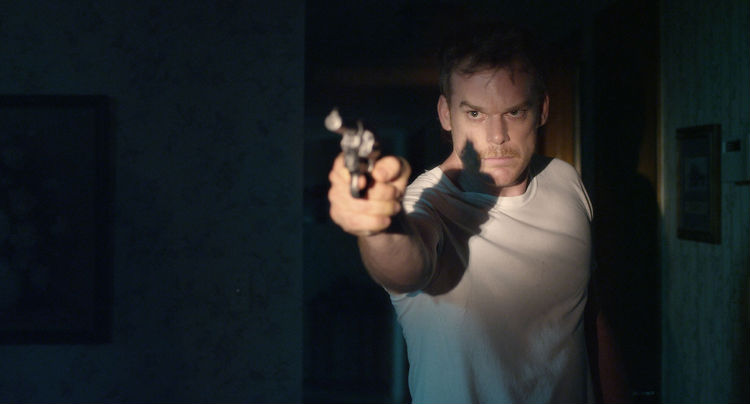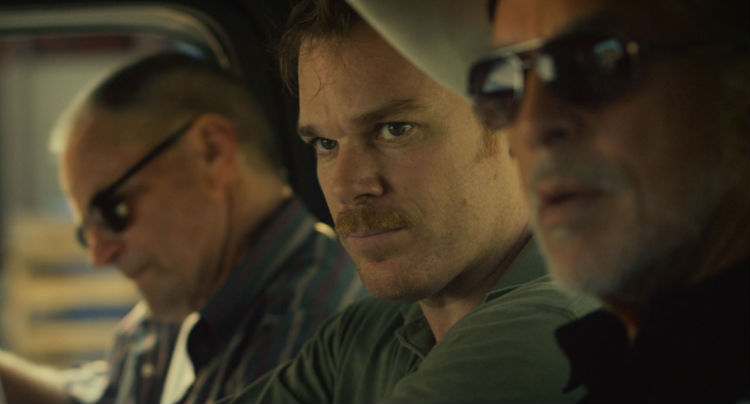
A pulpy, chameleonic thriller that falls apart in the end.

A pulpy, chameleonic thriller that falls apart in the end.
In Jim Mickle’s chameleonic noir thriller Cold in July, an adaptation of the cult novel by Joe R. Lansdale, Michael C. Hall takes perhaps the most drastic departure in his career, playing Richard Dane, a timid, unremarkable picture frame store owner who accidentally shoots a burglar in his small-town Texas home in the film’s wonderfully edited, punchy opening. The gutless Richard, shaken by the consequences of his twitchy trigger finger, is soon plunged head-first into a world of old-school cowboy badasses and gunfights when Russel, (a gruff Sam Shepard) the father of the slain home invader, seeks revenge on Richard and his family. The strength of Mickle’s film is that, once you feel like you know exactly where it’s going, it takes an unexpected turn and becomes almost a new kind of film entirely. The film’s weakness is that the varied forms it inhabits feel largely derivative, not elevated enough to free themselves from the norm.
At first, Richard and his wife (Vinessa Shaw) and son are terrorized by Russel, with the creepy ex-con picking up where his son left off, invading the Dane home, more as an act of intimidation than stealing. Mickle is gifted at squeezing every bit of intensity and terror out of classic stalker scenes, and these early sequences are truly gripping. He relishes in playing with genre conventions, mining the work of Romero most notably, though less so than his Zombie thriller, Stake Land. Pulpy ’70s flicks inform Cold in July‘s style throughout, with grisly flashes of violence punctuating Mickle’s methodical approach to action. (An exception is the film’s climax, a nighttime shootout that falls apart quickly and finishes of the film with an ugly thud.)

Hall, wearing a gloriously ’80s mullet, is fantastic as Richard, a meek man forced to become a tough-guy overnight. Helping him along on his road to becoming a true badass is Don Johnson, playing a karate-kicking private eye who gives the film a welcome dose of bravado. The relationship between Richard and Russel goes to unexpected places I won’t spoil here, but I will say that Hall and Shepard have a quiet chemistry that stretches them both as actors. Shaw, however, is regrettably invisible, adding little to the emotional core of the story, despite her character’s positioning in the plot being ripe for powerful scenes of heartache and fear. Those scenes never come.
Richard’s arc is fascinating on paper; he’s faced with the responsibility of being an alpha male for the sake of protecting his family. In that gunshot flash that opens the movie, he sends himself down a path he’d never had the desire to go down, and yet, he must man up or perish. What sullies the emotional impact of his story are the later acts, whose blood-splattering violence is so arresting and dizzying you forget the subtle details of what brought our hero there in the first place. Everything devolves into midnight movie craziness, and while it doesn’t erase how involving the first two thirds of the film are, it leaves a bad taste in your mouth. There’s a powerful theme of fatherly duty swimming around in the buckets of blood, but it in the end it all but drowns.